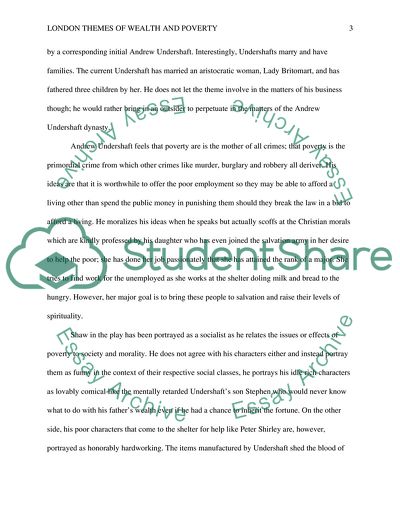Cite this document
(“How are the London themes of wealth and poverty and/or power and Essay”, n.d.)
How are the London themes of wealth and poverty and/or power and Essay. Retrieved from https://studentshare.org/literature/1638302-how-are-the-london-themes-of-wealth-and-poverty-andor-power-and-powerlessness-portrayed-in-two-texts
How are the London themes of wealth and poverty and/or power and Essay. Retrieved from https://studentshare.org/literature/1638302-how-are-the-london-themes-of-wealth-and-poverty-andor-power-and-powerlessness-portrayed-in-two-texts
(How Are the London Themes of Wealth and Poverty and/Or Power and Essay)
How Are the London Themes of Wealth and Poverty and/Or Power and Essay. https://studentshare.org/literature/1638302-how-are-the-london-themes-of-wealth-and-poverty-andor-power-and-powerlessness-portrayed-in-two-texts.
How Are the London Themes of Wealth and Poverty and/Or Power and Essay. https://studentshare.org/literature/1638302-how-are-the-london-themes-of-wealth-and-poverty-andor-power-and-powerlessness-portrayed-in-two-texts.
“How Are the London Themes of Wealth and Poverty and/Or Power and Essay”, n.d. https://studentshare.org/literature/1638302-how-are-the-london-themes-of-wealth-and-poverty-andor-power-and-powerlessness-portrayed-in-two-texts.


